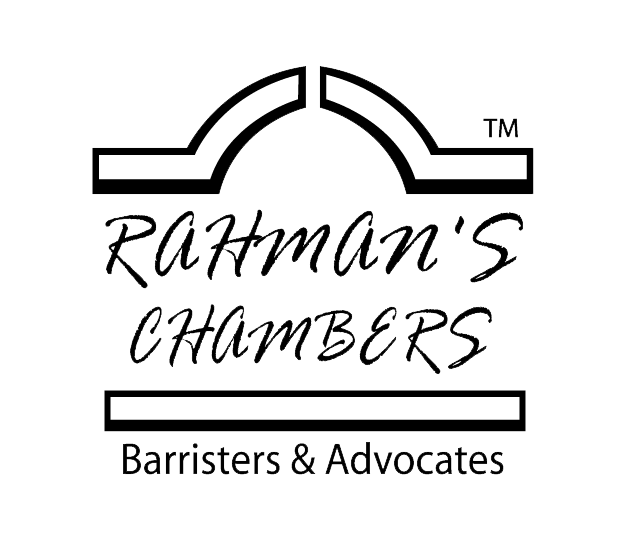Newsletter-Vol 1-2012
LAWS RELATING TO MARITIME LIEN AND MARITIME CLAIMS IN BANGLADESH
 A traditional maritime lien is a secured right in the “res”, i.e., in the property of another (ordinarily the ship), which arises with the claim, without registration Or other formalities it; travels with the vessel even if it is sold to third party; Which remains with the vessel until it is enforced by an action in rem; and Which, when so enforced gives the owner of the lien the claim priority in Ranking over most other claims notably ship mortgages.
A traditional maritime lien is a secured right in the “res”, i.e., in the property of another (ordinarily the ship), which arises with the claim, without registration Or other formalities it; travels with the vessel even if it is sold to third party; Which remains with the vessel until it is enforced by an action in rem; and Which, when so enforced gives the owner of the lien the claim priority in Ranking over most other claims notably ship mortgages.
In U.K. and commonwealth countries the term” maritime lien” applies only to Limited maritime claims, being seamen’s wages, master’s wages, master’s Disbursements salvage, damage (caused by the ship), bottomry and respondentia. These are known as “traditional maritime liens”.
Other maritime claims resulting from services supplied to the ship or damages done by the ship, notably claims for “necessaries provided to the vessel ( e.g. bunkers, supplies, repairs, and towage), as well as claims for cargo damage, for breaches of charter party and for contributions of the ship in general average, do not give rise to “traditional maritime liens” in but only to “statutory rights in rem” subject to fulfillment of certain conditions.
The “statutory rights in rem” are simply rights granted by statute to arrest a ship in an action in rem for a Maritime claim. Unli ke traditional maritime liens, Statutory rights in rem do not arise with the claim; they do not” travel with the ship” i.e. the right is lost of the vessel is sold to a third party and they rank after, rather than before, the ship mortgage in the distribution of the proceeds of the vessel’s judicial Sale.
On the other hand, in the United States and civil law Jurisdictions (e g France), however, claims for Necessaries, cargo damage and general average, Among others are granted full status as maritime liens by the relevant national legislation. They travel with the ship.
In Bangladesh, under section 477 and 478 of the Bangladesh Merchant Shipping Ordinance 1983 (Hereinafter “Ordinance) maritime lien for seaman Wages etc, master’s lien has been recognized. Under Section 4 (3) of the Admiralty Court Act 2000, an action In rem is pe rmissible for maritime lien.
On the other hand,” statutory action in rem” is directly Possible without fulfilling any other conditions for any Claim to the possession or ownership, disputes between co-owners as to possession, employment or income, any claim for mortgage/charge or any share therein, claim for forfeiture or condemnation of a ship/goods which are being carried.[section 3 (2 ) of Act 2000]
Further statutory action in rem is only permissible in case of claim for damage by ship, loss of life and personal injury loss or damage to good carried in a ship, claim arising out of any agreement relating to carriage of goods in a ship, claim in the nature of salvage any property on board, service rendered, any claim as to towage, pilotage, goods, material supplied to ship for operation and maintenance, construction, repair, equipment master’s wages, disbursement, bottomry, respondentia etc, if the person against whom the claim lies is the beneficial owner/in possession/in control of the ship and is the 100%beneficial owner for the time being. [Section 3(2) Act 2000] Otherwise, an action in personam is maintainable for such claims.
The courts in Bangladesh are taking restrictive approach Towards extending maritime lien beyond those which are recognized by statutes.
In [Al-Saya r Navigation C o. Vs. Delta International Traders L td. And ors. 1982,1 1 CLC( AD)] the Hon’ble Justice Bad rul Haider Chowdhury J. states:
“Maritime lien is different from maritime Claim. All maritime liens are no doubt maritime Claims but all maritime claims are not maritime liens. Only certain types of maritime claims give rise to the liens. It is well settled that the parties cannot by agreement confer lien status on a claim which is not by nature a lien. An action in rem is brought against the vessel whereas action in personam is against the owner. The lien and the proceeding in rem are Co-relative; where one exists the other can be taken and not otherwise. In the 19th century the Admiralty jurisdiction in England had at times termed certain maritime claim as Maritime lien. Again, there are certain Decisions which purported to circumscribe the liens, in the Law of Admiralty (Second Edition) the authors Grant Gilmore and Charles Black have summarized the history of lien and maritime claim during the course of ’19th and 20th century, on both the sides of the Atlantic. The consensus of opinion is recorded as Follows: The only liens recognized today are those created bv statutes and those historically recognized in maritime law.” (Page 633 lbid)…”.
The ranking of maritime liens, and with respect to other Categories of maritime claims, differs from country to Country. The traditional ranking of maritime liens in the U.K. i s as follows 1:) Special legislative rights 2) Court Costs (e.g. costs of seizure and judicial sale) 3 ) Maritime Liens ( i.e.” traditional” maritime liens): salvage, damage (e g collision)w, ages (masters’ and seamen’s and master’s disbursements 4)). Ship mortgages (registered); 5) Necessaries give statutory rights in rem for bunkers, Repairs, supplies, towage, etc.
By comparison, the United States has its own original ranking system: 1) Special legislative rights (of governments 2)); court costs 3 ) Preferred maritime liens: a) Wages of master and crew b ) Salvage c ) Maritime torts (e.g. Collision), including personal injury and death, Property damage and cargo tort liens; d ) Longshoremen (individuals, not stevedore company).e) U .S. contract Maritime liens( necessaries) entered in to before the filing Of a U.S. preferred mortgage.
This includes repairs, supply of bunkers, supplies, Stevedores, towage, and contract cargo damage liens and charterer’s liens, etc. 4) Preferred U.S. ship mortgage liens 5) U.S. contract liens (necessaries) arising after the filing of the U.S. preferred ship mortgage 6) Foreign ship mortgage7s) U, S. contract liens (other than necessaries) (e.9. contract cargo damage liens and charterers ‘liens) B) Unregistered mortgage and perfected, non-maritime liens.
In Bangladesh under section 479 of the Ordinance, the seaman’s lien is given priority of all other lien and charges Followed by master’s lien. The ranking with respect to other Categories of maritime claims are not stated in the statutes. However, the position of the UK is followed in Bangladesh With respect to the ranking of other categories of maritime Claims.
In cross-border claims, because of the different systems of Priorities, a court has to take two fundamental decisions. The court must first decide whether or not to recognize a Foreign maritime lien as a maritime lien, despite the fact that a corresponding claim arising within the court’s own Territorial jurisdiction would not constitute a maritime lien. Secondly, if the court decides to recognize the foreign Maritime lien as a maritime lien, it must then decide how to
Rank the underlying claim in the distribution of the judicial Sale proceeds.
Cross-border claims are not uncommon in Bangladesh. However, lawyers while filing admiralty suit and arresting the vessel; rarely rely on the conflict of laws (private International laws) rules. Rather admiralty court Act 2000i s Mostly relied on with regard to determining maritime lien And action in rem for maritime claims. Submission based on the conflict of laws rules as applicable of Bangladesh, in fit cases, would surely enrich the maritime laws and practice And maritime community as a whole.
To view the full Article, please click here.






Leave a Reply